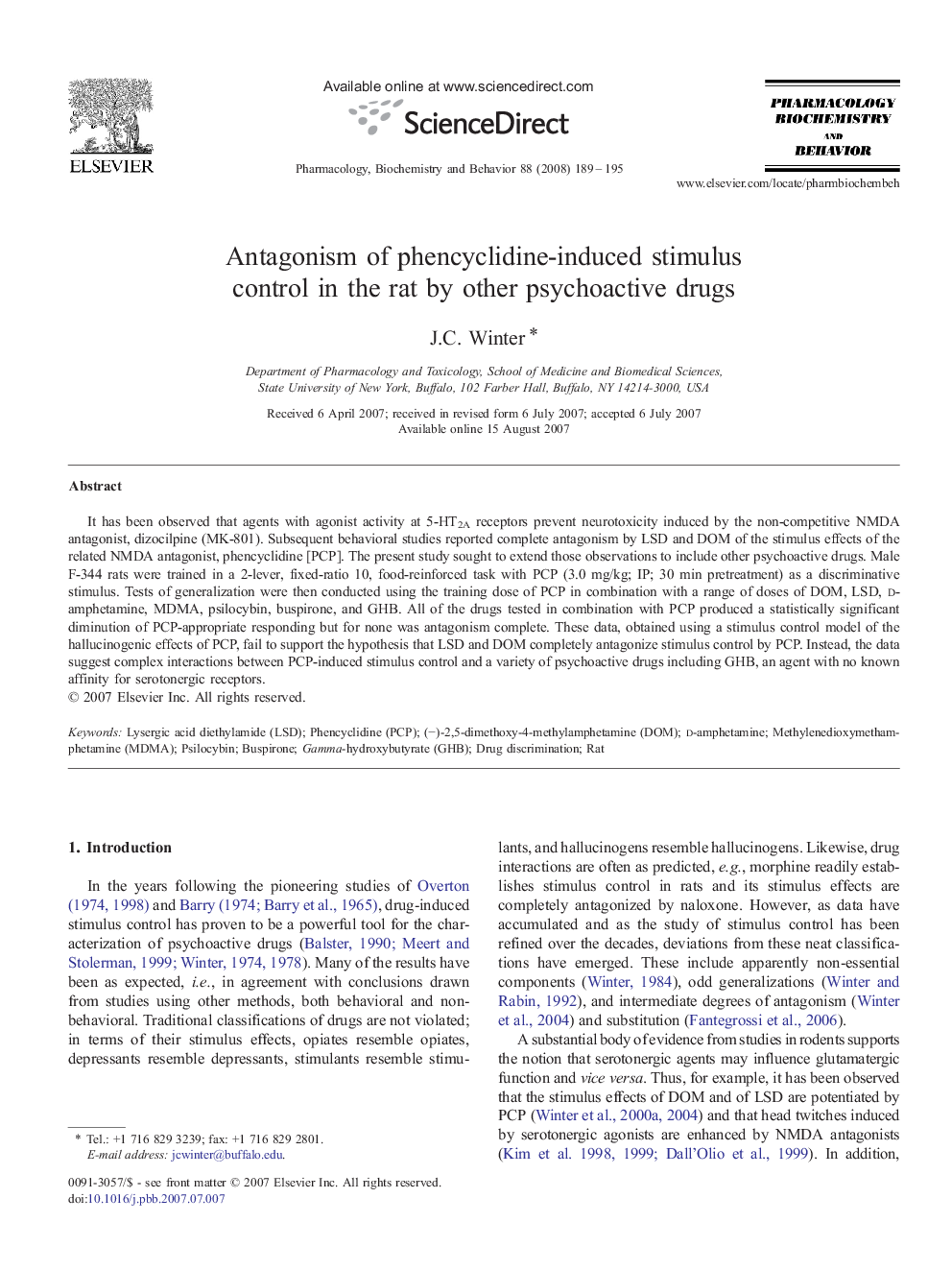| Article ID | Journal | Published Year | Pages | File Type |
|---|---|---|---|---|
| 2013633 | Pharmacology Biochemistry and Behavior | 2008 | 7 Pages |
It has been observed that agents with agonist activity at 5-HT2A receptors prevent neurotoxicity induced by the non-competitive NMDA antagonist, dizocilpine (MK-801). Subsequent behavioral studies reported complete antagonism by LSD and DOM of the stimulus effects of the related NMDA antagonist, phencyclidine [PCP]. The present study sought to extend those observations to include other psychoactive drugs. Male F-344 rats were trained in a 2-lever, fixed-ratio 10, food-reinforced task with PCP (3.0 mg/kg; IP; 30 min pretreatment) as a discriminative stimulus. Tests of generalization were then conducted using the training dose of PCP in combination with a range of doses of DOM, LSD, d-amphetamine, MDMA, psilocybin, buspirone, and GHB. All of the drugs tested in combination with PCP produced a statistically significant diminution of PCP-appropriate responding but for none was antagonism complete. These data, obtained using a stimulus control model of the hallucinogenic effects of PCP, fail to support the hypothesis that LSD and DOM completely antagonize stimulus control by PCP. Instead, the data suggest complex interactions between PCP-induced stimulus control and a variety of psychoactive drugs including GHB, an agent with no known affinity for serotonergic receptors.
